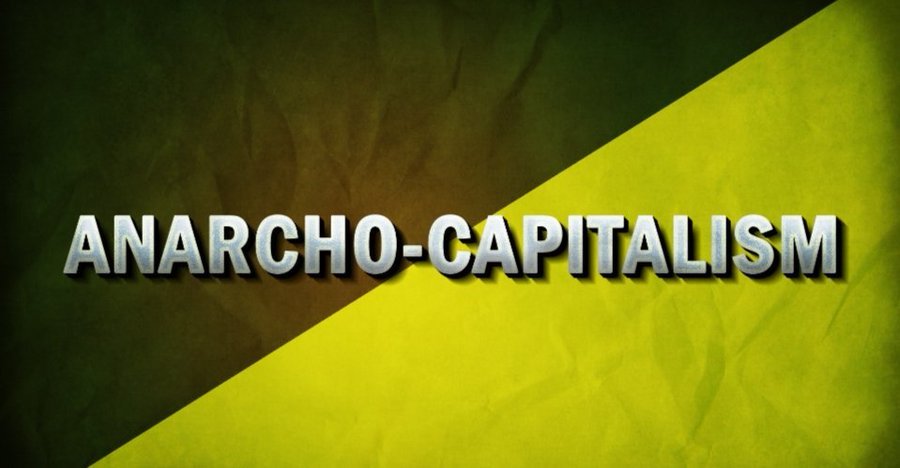Imagine a world without governments, laws dictated from above, or the ever-present hand of bureaucracy. This is the vision of anarcho-capitalism, a radical political and economic philosophy that proposes a free society governed by voluntary interactions and private property rights.
At first glance, the idea of a world without government might seem chaotic. But anarcho-capitalists argue that such a system, based on free markets and individual liberty, would be far more efficient, prosperous, and just than our current one.
What is Anarcho-Capitalism?
Anarcho-capitalism is a political philosophy that advocates for the abolition of centralized states and the establishment of stateless societies with systems of private property enforced by private agencies, free markets, and self-ownership. It is based on the principles of libertarianism and Austrian economics, and is often associated with the works of Murray Rothbard. Anarcho-capitalists believe that the state is an unnecessary and coercive institution that violates individual liberty, and that all social needs can be met through voluntary exchange of goods and services in a society regulated by the market rather than the state.
History of Anarcho-Capitalism
Anarcho-capitalism has its roots in the classical liberal tradition of the 19th century. The idea of a stateless society was first proposed by Pierre-Joseph Proudhon, a French philosopher and economist. He believed that the state was an oppressive institution that should be abolished. However, Proudhon was also a socialist, and he believed that the means of production should be owned collectively by the workers.
The idea of a stateless society was later developed by other anarchists such as Mikhail Bakunin and Peter Kropotkin. They believed that the state was an unnecessary and coercive institution that should be replaced by more communal, less competitive, forms of social organization. However, not all anarchists were socialists. In the 20th century, a new brand of anarchism emerged: anarcho-capitalism.
Anarcho-capitalism was first proposed by Murray Rothbard in the mid-20th century. Rothbard was a libertarian economist who believed that the state was an unnecessary and coercive institution that violated individual liberty. He argued that all social needs could be met through voluntary exchange of goods and services in a society regulated by the market rather than the state.
Criticism of Anarcho-Capitalism
Anarcho-capitalism is a controversial philosophy, and its feasibility and morality have been questioned by many. Critics argue that anarcho-capitalism would lead to a society dominated by the rich and powerful, where the poor and vulnerable would be left to fend for themselves. They also argue that anarcho-capitalism would lead to a breakdown of law and order, as private defense agencies would be more concerned with protecting their clients than with protecting the public interest.
Another criticism of anarcho-capitalism is that it is based on a flawed understanding of human nature. Anarcho-capitalists assume that people are rational and self-interested, and that they will always act in their own best interests. However, this assumption is not supported by the evidence. People are often irrational and make decisions that are not in their own best interests.
How exactly does it work?
Anarcho-capitalism rests on several key pillars:
- Abolishing the state: Centralized governments, with their monopoly on force and coercion, are seen as unnecessary and harmful. Anarcho-capitalists believe that individuals can and should govern themselves through voluntary agreements and private institutions.
- Free markets and voluntary exchange: The free market is seen as the engine of economic progress and social good. Individuals are free to trade, produce, and innovate without government interference.
- Private property rights: Absolute ownership of one’s property and resources is fundamental. This includes not just physical goods but also intellectual property and even one’s own body.
- Non-aggression principle (NAP): Initiating force against another person or their property is strictly prohibited. Private defense and security services would replace state-run police and justice systems.
Is Anarcho-Capitalism a Utopia or a Pipe Dream?
Whether anarcho-capitalism is a viable or desirable system is ultimately a matter of individual belief and values. However, exploring this radical philosophy can challenge our assumptions about government, economics, and the very nature of social order. It forces us to ask: what if we could create a society based not on force and coercion, but on voluntary cooperation and respect for individual liberty?
This blog post is just a brief introduction to the complex and fascinating world of anarcho-capitalism. If you’re interested in learning more, I encourage you to do your own research and explore the ideas of prominent thinkers in the movement, such as Murray Rothbard, David Friedman, and Lysander Spooner. Remember, critical thinking and open-mindedness are essential when considering any alternative vision for society.
What is the difference between anarchism and libertarianism? What is the difference between anarchism and libertarianism?

